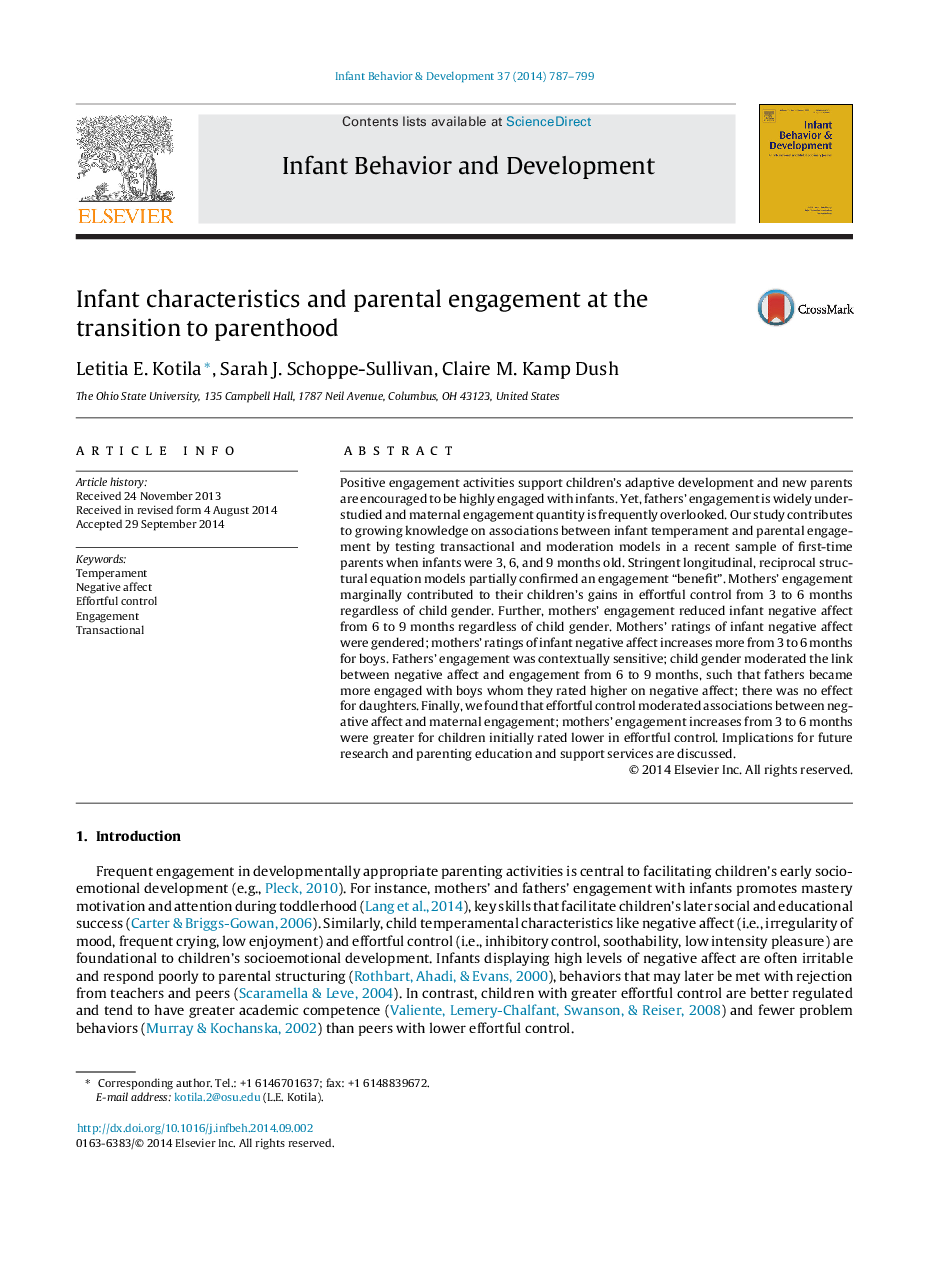| Article ID | Journal | Published Year | Pages | File Type |
|---|---|---|---|---|
| 10452645 | Infant Behavior and Development | 2014 | 13 Pages |
Abstract
Positive engagement activities support children's adaptive development and new parents are encouraged to be highly engaged with infants. Yet, fathers' engagement is widely understudied and maternal engagement quantity is frequently overlooked. Our study contributes to growing knowledge on associations between infant temperament and parental engagement by testing transactional and moderation models in a recent sample of first-time parents when infants were 3, 6, and 9 months old. Stringent longitudinal, reciprocal structural equation models partially confirmed an engagement “benefit”. Mothers' engagement marginally contributed to their children's gains in effortful control from 3 to 6 months regardless of child gender. Further, mothers' engagement reduced infant negative affect from 6 to 9 months regardless of child gender. Mothers' ratings of infant negative affect were gendered; mothers' ratings of infant negative affect increases more from 3 to 6 months for boys. Fathers' engagement was contextually sensitive; child gender moderated the link between negative affect and engagement from 6 to 9 months, such that fathers became more engaged with boys whom they rated higher on negative affect; there was no effect for daughters. Finally, we found that effortful control moderated associations between negative affect and maternal engagement; mothers' engagement increases from 3 to 6 months were greater for children initially rated lower in effortful control. Implications for future research and parenting education and support services are discussed.
Related Topics
Life Sciences
Neuroscience
Behavioral Neuroscience
Authors
Letitia E. Kotila, Sarah J. Schoppe-Sullivan, Claire M. Kamp Dush,
